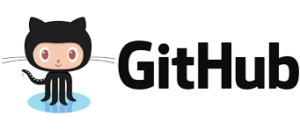What is Git?
Git is a distributed version control system (DVCS) that helps developers manage and track changes in their source code during software development. It allows multiple people to collaborate on a project simultaneously while keeping a complete history of all changes made to the codebase. Git is known for its speed, data integrity, and flexibility.
Creator of Git
Git was created by Linus Torvalds, the same individual who created the Linux operating system.
Importance of Git
Git is crucial in software development for several reasons:
- Version Control: Git tracks changes to code, enabling developers to work on different features or bug fixes in parallel without conflicts. This version control system ensures code integrity.
- Collaboration: Git facilitates collaboration among developers by allowing them to merge their changes seamlessly, even if they’re working remotely. This is vital for open-source projects and distributed teams.
- History and Documentation: Git maintains a detailed history of code changes, which acts as documentation. Developers can review the history to understand when, why, and how changes were made.
- Branching: Git’s branching system enables the creation of separate lines of development. This is useful for developing new features, experimenting, and isolating bug fixes.
- Reverting Changes: Developers can easily revert to a previous state if a bug is introduced or if a new feature doesn’t work as expected.
- Backup: Git repositories act as backups, ensuring that code is not lost, even if a local machine fails.
Evolution of Git
- Git was first released by Linus Torvalds in 2005.
- It gained popularity quickly due to its efficiency and distributed nature.
- GitHub, a web-based platform for hosting Git repositories, was launched in 2008. It played a significant role in popularizing Git by providing a user-friendly interface and collaboration tools.
- Git has evolved over the years with numerous updates, bug fixes, and feature enhancements.
- Git has become the de facto version control system in the software development industry, used by millions of developers and organizations worldwide.
GitHub
GitHub is a web-based platform built on top of Git, designed to make collaborative software development easier. It provides:
- Repository Hosting: Developers can create, host, and manage Git repositories on GitHub.
- Collaboration: GitHub offers tools for issue tracking, code review, and project management, making it easier for teams to work together.
- Social Features: Developers can follow others, star repositories, and contribute to open-source projects hosted on GitHub.
- Continuous Integration: GitHub Actions allows for automated testing and deployment directly from repositories.
- Integration: It integrates with various third-party tools and services, enhancing the development workflow.
GitHub has become a central hub for open-source projects and a valuable resource for developers and organizations to share, collaborate on, and distribute their code.
In summary, Git is a version control system that helps developers manage code changes efficiently, and GitHub is a web-based platform that enhances the collaborative aspect of Git, making it easier for developers to work together on projects. Both Git and GitHub have had a profound impact on the world of software development.

